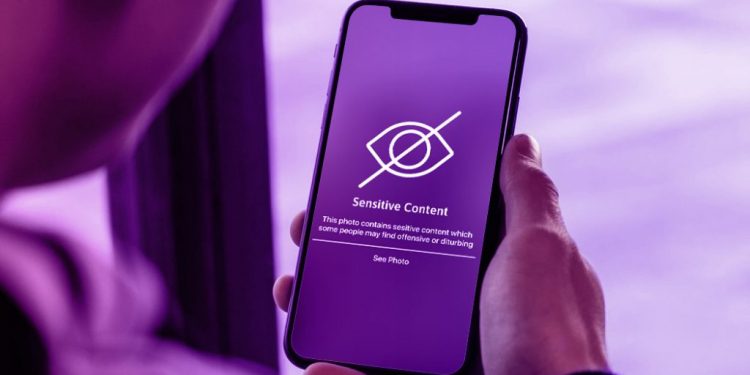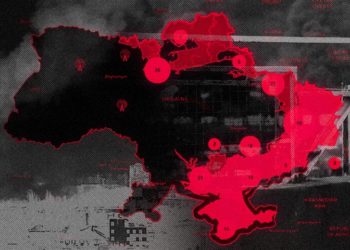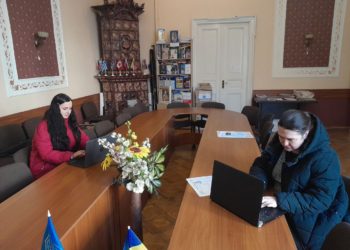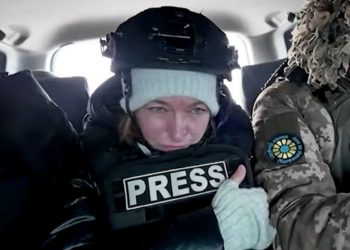The legal hotline for journalists and mass media representatives receives questions not only of a local but also of a general nature. We publish expert feedback to those who are of interest to many media people.
- Are there legal grounds for entering into an agreement with an individual giving a sensitive content interview on the dissemination of the information provided by him? What should this agreement concern?
Lawyer Danil Serbin, IBC Legal Services, answers:

– First of all, it is worth taking into account the fact that here, we are talking about copyright. The Civil Code of Ukraine, namely its Article 433, defines that the object of copyright is, in particular, written, oral, audiovisual, etc., works. According to Article 13 of the Law on Copyright and Related Rights, authors who jointly create a piece of work (a work created in co-authorship) are called co-authors. Therefore, the created interview, according to the prescriptions of the law, belongs to the objects of copyright, and such a work belongs to the right of co-authorship of the interviewer and the respondent.
However, the law does not consider news about current events that have the nature of ordinary press information as an object of copyright.
The legislation of Ukraine defines that the rights of the author to a certain work or another object of copyright consist of non-property and property rights:
- personal non-property rights of the author, for example, are the right to demand recognition of one’s authorship, the right to demand the preservation of the integrity of the work, the right to oppose any distortion, or other change of the work, etc.
Personal non-property rights belong only to the author, cannot be transferred (alienated) to other persons, and are not inherited.
- The author’s property rights are the right to use the work and the exclusive right to allow or prohibit the use of the work by others. Also, property rights to a work can be transferred (alienated) to another person based on a law or deed in whole or in part.
Co-authors own the property rights to the created work in equal shares unless otherwise provided by the deed or law.
Therefore, the legislation enables two options for resolving the issue of distribution of the created interview:
- obtaining verbal consent for the use of interviews in periodicals (newspapers, magazines, online media, etc.);
- conclusion of a bilateral written transaction (for example, an agreement between co-authors) or a unilateral written transaction (for example, permission to use), according to which the respondent grants the right to use the work for an unlimited period of time throughout the territory of Ukraine (or worldwide), regardless of method of use, etc.
It is worth considering one more thing: if the interview is taken during a live TV or radio broadcast, then the moment of creating the interview and the moment of its publication coincide. In this case, if the person agrees to participate in a live interview, it is considered that they also give consent to its dissemination.
However, even when a person has given consent to use a work or transferred their property rights to the work, they still have the full scope of the author’s personal non-property rights that they can exercise. In particular, the right to oppose distortion of the content of the work or other changes to it.
Also, the interviewee has the right to prevent their name from being mentioned, for example, if they are providing information of a sensitive nature or if their answers contain certain confidential or personal information that they do not wish to be made public. In this case, we recommend clarifying such aspects before publishing the interview and including in the contract between the interviewer and the respondent (if concluded) restrictions on the distribution of certain information. Suppose it is not a written contract but only a verbal agreement (although we recommend always regulating legal relations between co-authors by concluding a written deed). In that case, you must first find out whether there are certain restrictions and prohibitions on the part of the respondent and act following the prohibitions.
Reference information
The legal hotline for journalists and media representatives works under the auspices of the network of Journalists’ Solidarity Centers (JSC) of the National Union of Journalists of Ukraine (NUJU) with the support of UNESCO and the International and European Federations of Journalists. Media workers can get the necessary legal support as part of the program. Consultations are provided by highly qualified specialists of the legal company IBC Legal Services, lawyers with extensive experience who are not only high-class specialists but also pleasant people sincerely supporting their business in general and each client in particular. The company’s managing partner is Mykhailo Kocherov, a Doctor of Law/lawyer.
The service is free and available for media workers from any region or country where media workers are located. You can apply by filling out a special FORM. It is necessary to indicate contact data, the name of the mass media in which the media person works, and the region of residence, briefly outline the content of the appeal, and provide information that will help lawyers understand the essence of the issue and provide assistance.
About NUJU
The NUJU is Ukraine’s largest journalist organization, uniting 18,000 members and having regional organizations in each region of the country. With the start of Russia’s full-scale invasion of Ukraine, the NUJU focused on supporting Ukrainian journalists. In particular, Ukrainian media workers can receive protective means/equipment to work in the zone of hostilities and financial and psychological assistance.
About JSCs
The Journalists’ Solidarity Centers is an initiative of the NUJU implemented with the support of the International and European Federations of Journalists and UNESCO. The initiative is designated to help media representatives working in Ukraine during the war. The Centers operate in Kyiv, Lviv, Ivano-Frankivsk, Chernivtsi, Zaporizhzhia, and Dnipro and provide journalists with organizational, technical, legal, psychological, and other types of assistance.
About IBC Legal Services
IBC Legal Services is a company with many years of experience and a strong team of professionals: lawyers, advocates, auditors, accountants, appraisers, and forensic and economic experts. Broad specialization and long-term partnerships with specialists in various industries and directions allow the company to provide comprehensive support to clients in difficult situations.
About UNESCO
UNESCO is the United Nations Educational, Scientific, and Cultural Organization. It contributes to peace and security by promoting international cooperation in education, sciences, culture, communication, and information. UNESCO promotes knowledge sharing and the free flow of ideas to accelerate mutual understanding. It is the coordinator of the UN Action Plan on the Safety of Journalists and the Issue of Impunity, which aims to create a free and safe environment for journalists and media workers, thus strengthening peace, democracy, and sustainable development worldwide. UNESCO is working closely with its partner organizations in Ukraine to provide support to journalists on the ground.
The designations employed and the presentation of material throughout this digest do not imply the expression of any opinion whatsoever on the part of UNESCO concerning the legal status of any country, territory, city, or area or its authorities or concerning the delimitation of its frontiers or boundaries.
The authors are responsible for the choice and the presentation of the facts contained in this digest and for the opinions expressed therein, which are not necessarily those of UNESCO and do not commit to the organization.

 THE NATIONAL UNION OF
JOURNALISTS OF UKRAINE
THE NATIONAL UNION OF
JOURNALISTS OF UKRAINE
















Discussion about this post